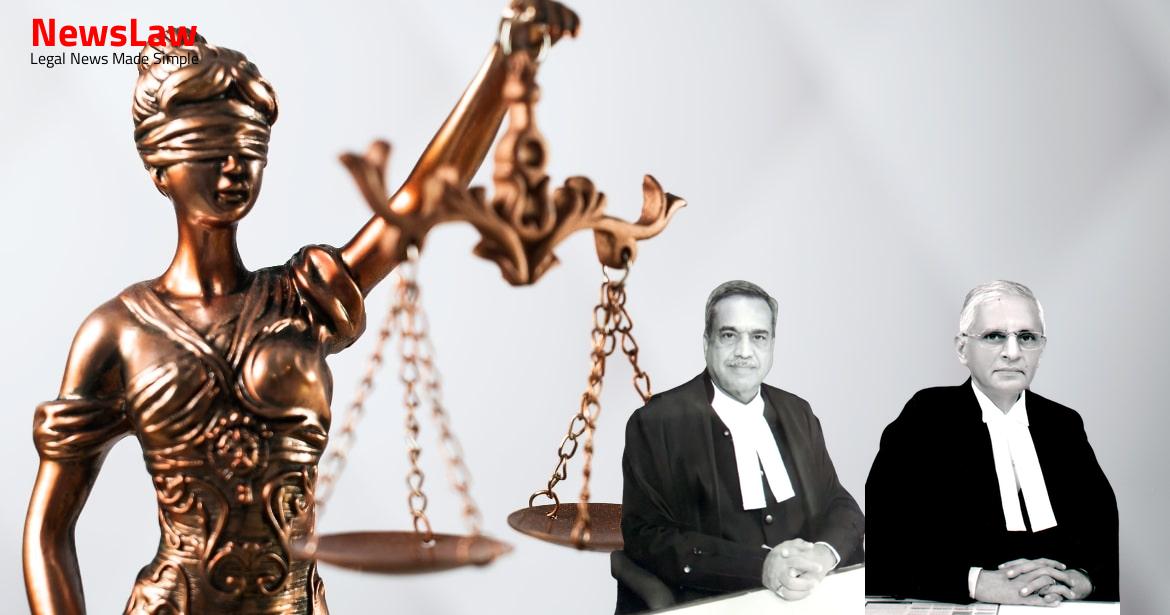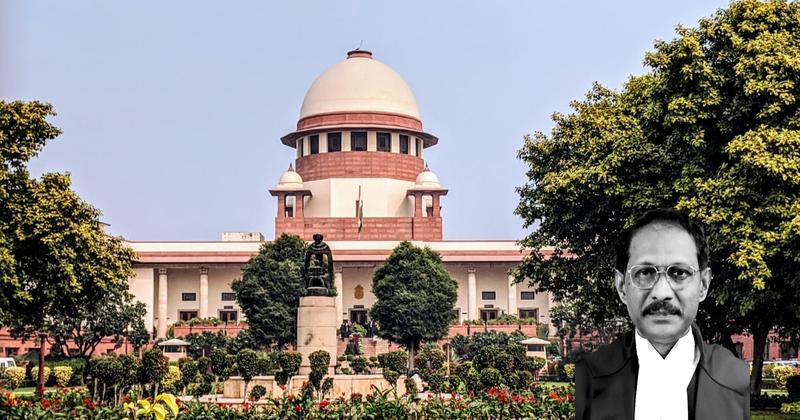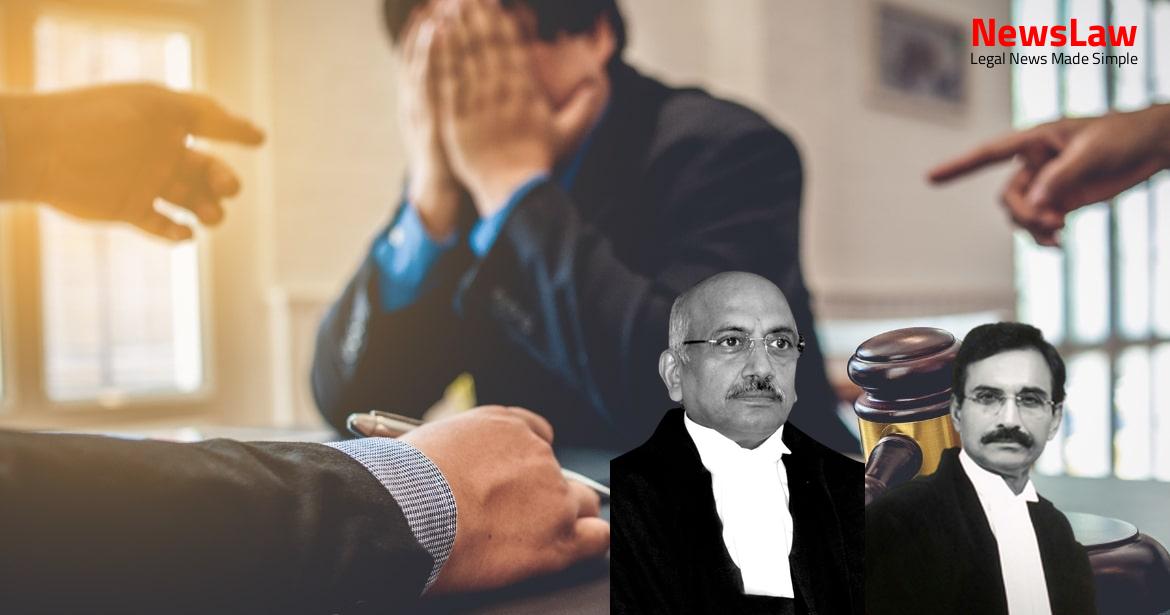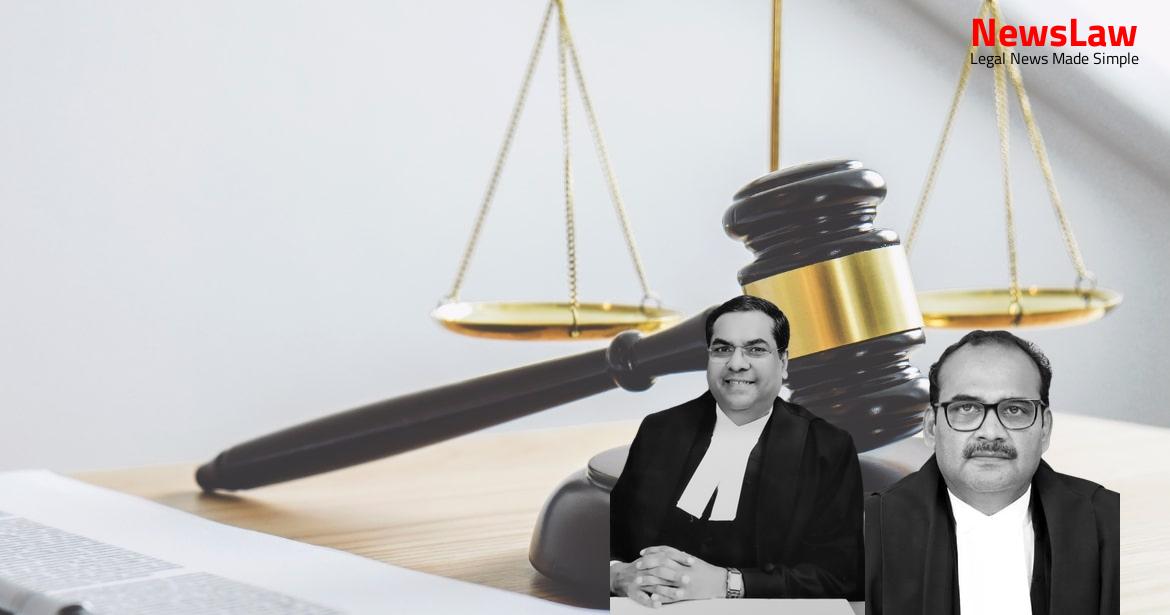In a recent legal case, the court highlighted the importance of not granting adjournments too readily and repeatedly. Emphasizing the need to curb the culture of adjournments, the court’s legal analysis focused on upholding the rule of law and ensuring efficient justice delivery. Find out more about the significance of timely resolution of disputes and the impact of court decisions on legal processes.
Facts
- The order passed by the Trial Court was confirmed by the High Court in the impugned judgment and order.
- Current SLPs have been filed challenging the High Court’s order dated 17.02.2021 which dismissed the misc. petition of the petitioner, confirming the Trial Court’s decision to close the right to cross-examine the plaintiff’s witness.
- Respondents filed suit for eviction, arrears of rents and mesne profit in 2013 against the petitioner and another individual.
- The petitioner failed to cross-examine the plaintiff’s witness despite multiple opportunities.
- Trial Court closed the right of cross-examination on 21.12.2020 due to the petitioner’s repeated adjournment requests and failure to cross-examine.
- High Court granted a last opportunity to the defendants to cross-examine the witness, but they still did not do so.
- Petitioner filed a written statement and issues were framed in the case.
- Various adjournments were sought by the defendants from 2015 to 2019, with one last adjournment given in 2019 with a cost.
- Despite warnings and costs, the petitioner failed to cross-examine the plaintiff’s witness.
- High Court allowed a petition by the petitioner but the cross-examination did not happen.
Also Read: Judicial Review of Delayed Writ Petition
Analysis
- The misplaced sympathy and indulgence by the appellate and revisional courts exacerbate the issue of delays in justice delivery.
- Granting repeated adjournments as a routine practice hampers the progress of cases and affects the litigants adversely.
- Procrastination, whether individual or institutional, is a systemic disorder that contributes to delays in justice.
- Courts are urged to perform their duties diligently to strengthen the confidence of the common man in the justice system.
- Repeated adjournments break down the patience of litigants and hinder the timely resolution of disputes.
- Adjournments should not be misused to stall justice, and delays in access to justice can erode trust in the legal system.
- Advocates have a duty to attend trials regularly, and abusing the procedure provided in the CPC is not permissible.
- Delayed resolution of disputes leads to a dent in the normative dispensation of justice and undermines the reverence for the legal system.
- Courts need to be more sensitive to delays in the justice delivery system and act promptly to prevent the erosion of public trust.
- Misuse of adjournments, dilatory tactics, and repeated delays in court proceedings insult the concept of speedy case disposal and justice.
- Petitioners and defendants have a responsibility to cooperate in timely trials, and failure to do so disgrace the principles of justice and efficiency in the legal process.
- The court observed that repeated adjournments sought by lawyers and granted by the courts have a corrosive effect on litigation and can entangle a case in delays.
- The delay in the justice-delivery system erodes faith in the system and must be avoided at all costs.
- Lawyers have an obligation to ensure speedy dispensation of justice and uphold the dignity of the court.
- Non-appearance by a counsel in court can have serious consequences and lawyers must be answerable for such actions.
- The role of lawyers in upholding justice and the values of the legal profession is crucial for the effective functioning of the judiciary.
- Justice delayed is justice denied, and timely delivery of justice is essential for maintaining faith in the legal system.
- Both the court and lawyers have reciprocal duties to maintain respect for each other and ensure efficient functioning of the legal system.
- Adjournments should not be used to delay proceedings unnecessarily, and all parties involved in a case must cooperate for effective resolution.
- Courts should not grant adjournments in a routine and mechanical manner to avoid delays in justice dispensation.
- Judicial officers must be diligent in taking timely action to ensure efficient justice delivery and maintain faith in the rule of law.
- Suits for eviction based on the bonafide requirements of the landlord are common.
- Efforts that weaken the justice system and shake the public’s faith in it should be discouraged.
- Judicial officers need to prioritize their duty to provide timely justice to litigants over concerns of displeasure from the Bar.
Also Read: Ownership Dispute: Legal Analysis on Admission and Decree
Decision
- The court emphasizes the importance of not granting adjournments too readily and repeatedly.
- The petitioner-defendant in the case was granted multiple adjournments over a span of four years, even after being warned that no further time would be extended.
- Despite being given opportunities, the petitioner-defendant did not utilize the chances granted by the court.
- The court notes that the petitioner-defendant appeared to have misused the liberty and grace shown by the court.
- It is mentioned that the main suit has now been disposed of, indicating a prolonged legal process.
- In light of the circumstances, the Special Leave Petitions (SLPs) filed by the petitioner are dismissed, reflecting the need to curb the culture of adjournments and uphold the rule of law.
Also Read: Interpretation of Statutory Limitation under Section 263(2)
Case Title: ISHWARLAL MALI RATHOD Vs. GOPAL (2021 INSC 502)
Case Number: SLP(C) No.-014117-014118 / 2021



